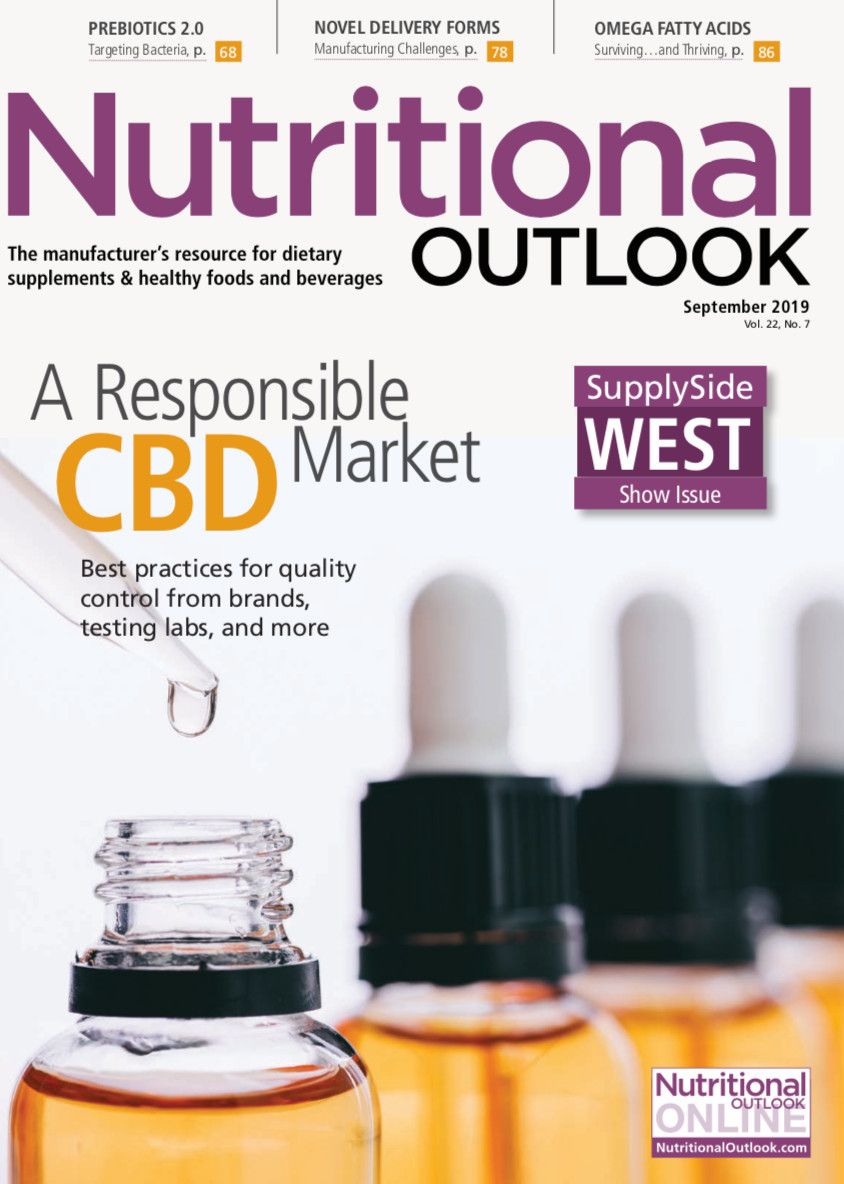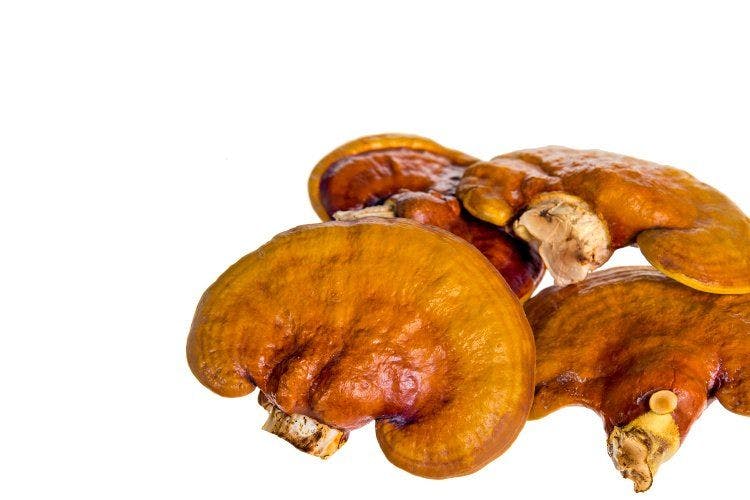No pinkwashing! Women’s health supplements reach beyond the typical
Run-of-the-mill supplements and pinkwashed marketing will not resonate in today’s highly personalized market.
Photo © AdobeStock.com/lizaelesina

If there’s one trend disrupting nearly every market, it’s personalization. We want ingredients for tonight’s dinner curated to our personal dietary preferences and delivered to our doors. We don’t want to channel surf; we want our television streaming service to tell us what we might want to watch next, based on our unique viewing preferences. And, if the bespoke supplement packs dotting Instagram feeds are any indication, the nutraceuticals market is about to get a personalization makeover, too.
In the meantime, short of drilling down to each individual, brands and manufacturers can provide specialized formulations in the form of condition- and gender-specific supplements to the consumers who want it most. This includes women.
“Women are taking control of their health like never before,” says Michael Chernyak, president of CK Nutraceuticals (Oakville, ON, Canada). “They are increasingly zoning in on their specific needs and wants, as opposed to choosing broad-based supplements meant to promote general health.” As a result, brands are seeing increased interest in condition-specific natural health products for women. In short? The women’s supplement market is about so much more than a women’s daily multivitamin or prenatal vitamin.
“The modern consumer has become accustomed to nearly immediate, to-their-door delivery that gets them their product as soon as they need it,” says Amy Upchurch, founder and CEO of supplements brand Pink Stork, noting that the market is shifting as a result. “When it comes to supplements, there is a demand for convenient, on-the-go packaging and products that support the different lifestyles of busy women.”
Evolving Ingredients
Not only do women live longer than men, on average, but their life expectancy is ever on the rise. In 1984, a woman’s life expectancy was 78; today, women are living to age 81. “Consequently, women are living more years in the post-menopause phase of life,” says Sally Aaron, senior vice president of health ingredients and marketing at Evolva (Reinach, Switzerland). This is opening up the market for not just increased interest in supplements addressing menopause-related issues, but also those addressing general health issues women encounter as they age.
“We believe the menopause-relief category continues to offer opportunities for growth in natural solutions,” says Chernyak. CK Nutraceuticals’ EstroG-100 ingredient, a patented combination of herbal extracts, is marketed for a broad range of menopause symptoms.
Yet another tried-and-true area for women’s health supplements is urogenital discomfort, which still posts high prevalence and recurrence, says Elodie Aragon, product manager at Lallemand Health Solutions (Montreal, QC, Canada), marketers of Probiocap probiotics. According to the U.S. Department of Health & Human Services, urinary tract infections occur mainly in women, affecting half of all women at some point in their lives. When it comes to vaginal health, bacterial vaginosis (a condition occurring when there’s too much of a certain kind of bacteria in the vagina) is the most common vaginal infection in women ages 15 through 44, with about 30% of women in this age group having reported occurrence. Together, these issues are due to “an imbalance of the urogenital microbiota,” says Aragon, “and this is increasingly well understood by consumers, hence the demand for natural, holistic supplement approaches to help maintain balanced microbiota.” So while probiotics have been generally associated with gut health, demand is increasing in the women’s health category.
But what’s most exciting about the women’s health category is that supplement brands and ingredient suppliers alike are going beyond traditional issues like menopause and vaginal health to offer products for all stages of a woman’s life and appealing to all kinds of health goals.
One of the areas on the rise as women outlive men is cognitive health, Aaron says. “In the U.S., health problems related to cognitive decline, specifically Alzheimer’s disease, are the sixth leading cause of death,” she says. “Medical interventions for cognitive decline remain elusive, so women are looking for alternatives across the diet, exercise, and lifestyle spectrum for solutions that will work for them.” At Evolva, the ingredient addressing this demand is resveratrol, which the company says can support improved memory, focus, and concentration by enhancing cellular energy uptake, scavenging reactive oxygen species, increasing anti-inflammation capacity, and more.
But that’s not all. “Sports nutrition research historically focused on male athletes, overlooking the nutritional needs of females in regards to supporting proper metabolism,” says Bergstrom Nutrition’s (Vancouver, WA) vice president of sales and marketing, Tim Hammond. In response, the company is pursuing female-specific research on its OptiMSM ingredient. Initial findings suggest the ingredient may increase collagen cross-linking in engineered human ligaments treated with high estrogen. “This demonstrates that MSM might completely reverse the negative effects of estrogen on ligament mechanics,” Hammond says. “Our follow-up clinical study will focus on determining the impact of OptiMSM on knee laxity changes throughout the menstrual cycle in active young women.”
Beauty-from-within is another area impacting the women’s health supplement market, says Karin Hermoni, head of science and nutrition at Lycored (Secaucus, NJ), as women of all ages want to age beautifully. In response, Lycored offers carotenoids like natural tomato extract to support skin health.
Marketing and Delivery
For years, the women’s health market has been plagued by “shrink and pink,” a method of marketing meant to attract female buyers. That just won’t fly with today’s female consumers who want something more than a pinkwashed version of products marketed to men.
Specifically, women want creative delivery formats. According to Staness Jonekos, founder and CEO of the brand Eat Like a Woman Inc., functional foods are becoming increasingly popular in the women’s supplement market. In response, the company offers Life Stage Shakes-plant-based protein powders fortified with probiotics-for reproductive health, pregnancy, lactation, menopause, and other health goals.
“Women are looking for innovative products to take on the go and alternatives to pills and capsules due to pill fatigue,” agrees Aaron. “For example, we know women are interested in powder sachet drink mixes and emerging film strips that are gaining popularity in Europe.” To that end, Evolva offers cold-water-dispersible Veri-Sperse resveratrol for beverage formulations.
Lallemand is meeting demands for convenience by offering ComboCap ‘Biotics, which is a delivery format capable of combining probiotics and oils, two incompatible ingredients, into orodispersible sticks (which can be taken at any time of day without water), chewing tablets, and more.
Beyond delivery formats that make taking supplements convenient for on-the-go female consumers, marketing must appeal to them where they are-social media. “The level for social media influencers has never been higher,” says Jacob Fishback, sales supervisor and client product specialist at Lief Labs. “Instagram, Facebook, and YouTube have given women a massive platform to reach consumers on a daily basis,” which means that women have access to a community of peers and experts providing educational and informative content that can help inform their health choices.
“I think this idea of empowering yourself and taking your health and overall wellness into your own hands is something that more women are doing,” agrees Meg Ligot, product development manager at Lief Labs. “Being fit and healthy is the new black, and more and more women are becoming active and taking products to help them live that lifestyle.”
Sidebar: Packaging Do's and Dont's
Don Earl, president of contract labeling and packaging firm Overnight Labels (Deer Park, NY), tackles what appeals-and what repels-female supplement shoppers.
Do: Utilize a clean aesthetic. “Product function should be clearly stated,” he says, with any organic claims conspicuously conveyed.
Don’t: Be vague when it comes to packaging design, product function, or claims. “Women are busier now than they have ever been and don’t have time to decipher your product message,” Earl says.
Do: Utilize soft metallics and a mix of matte and foil finishes, which are on-trend and draw the eye. “These printing techniques provide a high-end look many women are drawn to,” he says, “as well as a pop, so products stand out both on store shelves and online.”

Prinova acquires Aplinova to further increase its footprint in Latin America
April 7th 2025Prinova has recently announced the acquisition of Brazilian ingredients distributor Aplinova, which is a provider of specialty ingredients for a range of market segments that include food, beverage, supplements, and personal care.

























